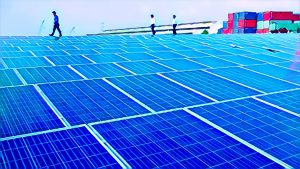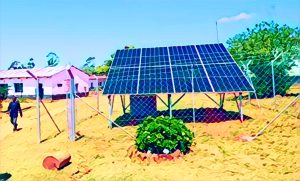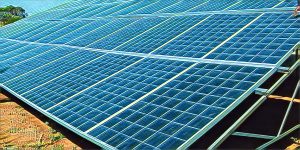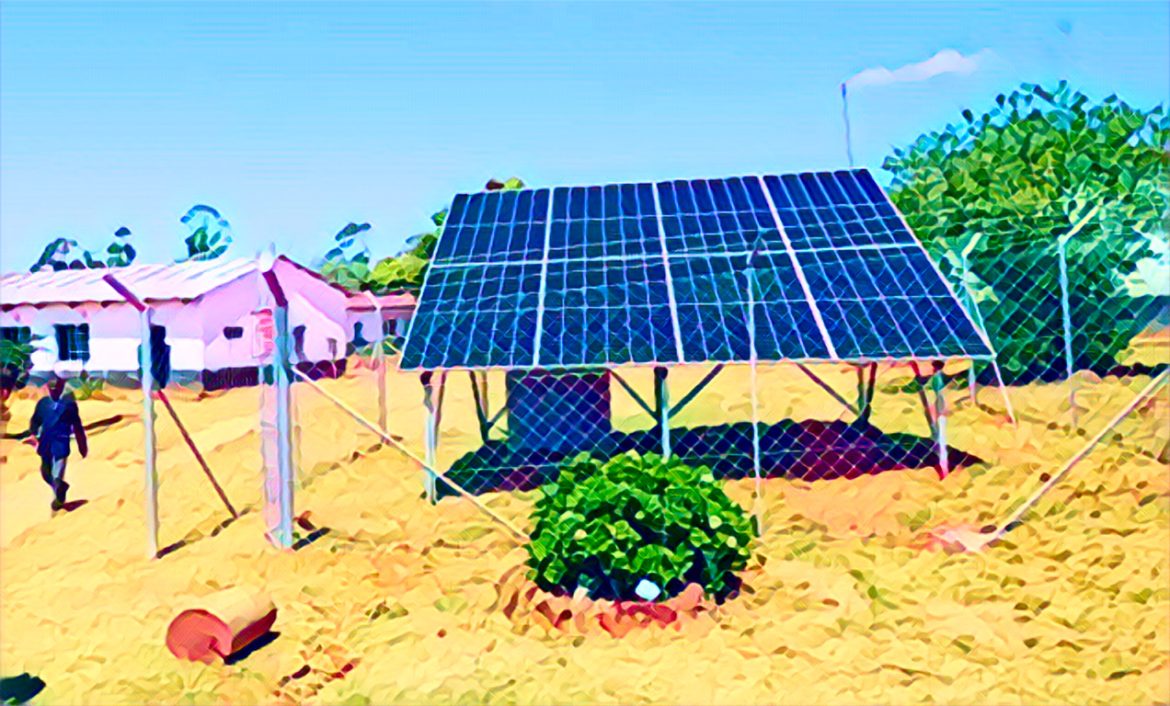KEY POINTS
- Solar mini-grids power schools, clinics, and businesses in rural Zimbabwe.
- Solar irrigation boosts agricultural productivity and food security.
- Private-sector solar investments reduce energy poverty in remote communities.
Zimbabwe’s energy sector faces immense challenges, with energy poverty affecting over 70 percent of its rural population.

Solar energy is emerging as a game-changing solution, providing a reliable, affordable, and sustainable alternative to traditional power sources.
For these communities, limited access to electricity means reduced productivity, economic stagnation, and limited opportunities for education and healthcare.
However, solar energy is emerging as a game-changing solution, providing a reliable, affordable, and sustainable alternative to traditional power sources.
By leveraging solar power, Zimbabwe is witnessing significant transformation in rural areas, where previously underserved populations are now gaining access to the energy needed for growth.
Let’s explore how solar energy is reshaping rural Zimbabwe’s economic and social landscape.
Solar energy in rural Zimbabwe
Government initiatives
The Zimbabwean government has made significant strides in promoting renewable energy, particularly solar, as part of its rural electrification agenda.
The Rural Electrification Fund (REF) has been pivotal in funding solar projects that reach underserved regions. Solar-powered schools, clinics, and business hubs are emerging as critical infrastructure for rural development.

The Rural Electrification Fund (REF) has been pivotal in funding solar projects that reach underserved regions. Solar-powered schools, clinics, and business hubs are emerging as critical infrastructure for rural development.
Government policy frameworks, such as the Renewable Energy Policy (2019), aim to incentivize solar energy adoption by reducing import duties on solar components and fostering public-private partnerships. These initiatives are positioning solar as a cornerstone of Zimbabwe’s sustainable energy strategy.
Private sector investment
Private companies are also playing a vital role in scaling solar energy solutions in rural Zimbabwe. Organizations like Distributed Power Africa (DPA) and SolarAid have deployed off-grid solar systems, offering solar home kits and mini-grids that power homes, schools, and small businesses.
The growth of pay-as-you-go solar models has made solar systems more accessible to low-income households, enabling even the most impoverished families to benefit from clean energy. These investments reflect the private sector’s recognition of the immense potential of solar in addressing Zimbabwe’s energy deficit.
Community-based projects

Zimbabwe aims to set up automated solar collector plant
In rural Zimbabwe, community-driven solar projects are gaining traction, especially in areas where central grid expansion remains economically unviable.
Solar-powered mini-grids, often supported by NGOs and development agencies, provide a decentralized solution to energy access. For instance, the Nyamadzawo Solar Project supplies electricity to an entire village, powering irrigation systems, water pumps, and local schools. Such initiatives showcase how grassroots participation can amplify the impact of solar energy while fostering community ownership and sustainability.
Impact of solar energy on rural communities
Access to energy
Solar energy is bridging Zimbabwe’s rural-urban energy divide by providing consistent power to remote areas. With solar installations, clinics can operate refrigeration for vaccines, schools can conduct evening classes, and homes can access lighting, replacing dangerous kerosene lamps. This newfound access is empowering rural residents to participate in the modern economy and improve their quality of life.
Economic growth
Solar power is fueling economic growth in Zimbabwe’s rural regions by creating opportunities for entrepreneurship and agricultural productivity. Small businesses, such as welding shops and food processors, benefit from reliable power, reducing operating costs and expanding production. In agriculture, solar irrigation systems enable farmers to cultivate crops year-round, enhancing food security and increasing income levels.
Improved livelihoods
Beyond economic benefits, solar energy is improving overall livelihoods. Reliable lighting has transformed evening routines, allowing students to study after sunset and families to engage in income-generating activities like sewing. Additionally, access to solar-powered water pumps reduces the physical strain of fetching water, improving health outcomes and freeing up time for other pursuits.
Used cases
- Community mini-grids: In Mutoko District, a solar-powered mini-grid is electrifying schools and a local clinic, ensuring vaccine preservation and evening lessons.
- Business growth: A rural bakery powered by solar in Mashonaland East increased its production capacity by 50%, creating local employment opportunities.
- Agricultural boost: Solar irrigation in Chiredzi District has enabled farmers to triple their yields, demonstrating the transformative power of clean energy in agriculture.
Driving economic growth
With solar’s increasing affordability, Zimbabwe has a golden opportunity to expand energy access across rural regions, fostering widespread economic activity. Solar’s scalability makes it an ideal solution for communities previously left in the dark.
Universal access potential
By investing in solar infrastructure, Zimbabwe can achieve universal energy access in rural areas, transforming lives while meeting global sustainability goals. Scaling partnerships with development agencies and fostering local manufacturing of solar components could accelerate this vision.
Addressing challenges
However, achieving these goals requires addressing barriers such as limited financing for small-scale solar projects and a lack of technical expertise in remote areas. Strengthened policies, skill-building initiatives, and enhanced public-private collaborations can overcome these challenges.
Solar energy is not only lighting up rural Zimbabwe but also unlocking untapped potential for economic growth and improved living standards. With continued investments, robust policy frameworks, and community-driven initiatives, solar power could become the cornerstone of Zimbabwe’s sustainable development.
By addressing energy poverty, Zimbabwe’s rural regions are poised to experience a brighter, more prosperous future.


